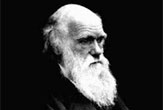Judge Rules: Intelligent Design Can't Be Taught in Class

Judge on school district's policy: "breathtaking inanity"
HARRISBURG, Pa. (AP) —In one of the biggest courtroom clashes between faith and evolution since the 1925 Scopes Monkey Trial, a federal judge barred a Pennsylvania public school district Tuesday from teaching "intelligent design'' in biology class, saying the concept is creationism in disguise.
U.S. District Judge John E. Jones delivered a stinging attack on the Dover Area School Board, saying its first-in-the-nation decision in October 2004 to insert intelligent design into the science curriculum violates the constitutional separation of church and state.
The ruling was a major setback to the intelligent design movement, which is also waging battles in Georgia and Kansas. Intelligent design holds that living organisms are so complex that they must have been created by some kind of higher force.
Jones decried the "breathtaking inanity'' of the Dover policy and accused several board members of lying to conceal their true motive, which he said was to promote religion.
A six-week trial over the issue yielded "overwhelming evidence'' establishing that intelligent design "is a religious view, a mere re-labeling of creationism, and not a scientific theory,'' said Jones, a Republican and a churchgoer appointed to the federal bench three years ago.
The school system said it will probably not appeal the ruling, because the members who backed intelligent design were ousted in November's elections and replaced with a new slate opposed to the policy.
Get the world’s most fascinating discoveries delivered straight to your inbox.
During the trial, the board argued that it was trying improve science education by exposing students to alternatives to Charles Darwin's theory of evolution and natural selection.
The policy required students to hear a statement about intelligent design before ninth-grade lessons on evolution. The statement said Darwin's theory is "not a fact'' and has inexplicable "gaps.'' It referred students to an intelligent-design textbook, "Of Pandas and People.''
But the judge said: "We find that the secular purposes claimed by the board amount to a pretext for the board's real purpose, which was to promote religion in the public school classroom.''
In 1987, the U.S. Supreme Court ruled that states cannot require public schools to balance evolution lessons by teaching creationism.
Eric Rothschild, an attorney for the families who challenged the policy, called the ruling "a real vindication for the parents who had the courage to stand up and say there was something wrong in their school district.''
Richard Thompson, president and chief counsel of the Thomas More Law Center in Ann Arbor, Mich., which represented the school district and describes its mission as defending the religious freedom of Christians, said: "What this really looks like is an ad hominem attack on scientists who happen to believe in God.''
It was the latest chapter in a debate over the teaching of evolution dating back to the Scopes trial, in which Tennessee biology teacher John T. Scopes was fined $100 for violating a state law against teaching evolution.
Earlier this month, a federal appeals court in Georgia heard arguments over whether a suburban Atlanta school district had the right to put stickers on biology textbooks describing evolution as a theory, not fact. A federal judge last January ordered the stickers removed.
In November, state education officials in Kansas adopted new classroom science standards that call the theory of evolution into question.
President Bush also weighed in on the issue of intelligent design recently, saying schools should present the concept when teaching about the origins of life.
In his ruling, Jones said that while intelligent design, or ID, arguments "may be true, a proposition on which the court takes no position, ID is not science.'' Among other things, he said intelligent design "violates the centuries-old ground rules of science by invoking and permitting supernatural causation''; it relies on "flawed and illogical'' arguments; and its attacks on evolution "have been refuted by the scientific community.''
"The students, parents, and teachers of the Dover Area School District deserved better than to be dragged into this legal maelstrom, with its resulting utter waste of monetary and personal resources,'' he wrote.
The judge also said: "It is ironic that several of these individuals, who so staunchly and proudly touted their religious convictions in public, would time and again lie to cover their tracks and disguise the real purpose behind the ID Policy.''
Former school board member William Buckingham, who advanced the policy, said from his new home in Mt. Airy, N.C., that he still feels the board did the right thing.
"I'm still waiting for a judge or anyone to show me anywhere in the Constitution where there's a separation of church and state,'' he said. "We didn't lose; we were robbed.''
The controversy divided Dover and surrounding Dover Township, a rural area of nearly 20,000 residents about 20 miles south of Harrisburg. It galvanized voters to oust eight school board members who supported the policy in the Nov. 8 school board election. The ninth board member was not up for re-election.
The new school board president, Bernadette Reinking, said the board intends to remove intelligent design from the science curriculum and place it in an elective social studies class. "As far as I can tell you, there is no intent to appeal,'' she said.
- SPECIAL REPORT: Evolution & Intelligent Design
- Pope Weighs in on Evolution Controversy
- Vatican Cardinal: Listen to What Modern Science Has to Offer
- Behind the Controversy: How Evolution Works
- Top 10 Missing Links in Human Evolution
- Poll: Public Divided on Evolution
- Evolution's Vestigal Organs
- Top 10 Creation Myths
The Flawed Dover Statement
Text of the statement on intelligent design that Dover Area High School administrators had been reading to students at the start of biology lessons on evolution (and which is now banned by Tuesday's court decision):
"The Pennsylvania Academic Standards require students to learn about Darwin's theory of evolution and eventually to take a standardized test of which evolution is a part.
"Because Darwin's theory is a theory, it continues to be tested as new evidence is discovered. The theory is not a fact. Gaps in the theory exist for which there is no evidence. A theory is defined as a well-tested explanation that unifies a broad range of observations.
"Intelligent design is an explanation of the origin of life that differs from Darwin's view. The reference book, 'Of Pandas and People,' is available in the library along with other resources for students who might be interested in gaining an understanding of what intelligent design actually involves.
"With respect to any theory, students are encouraged to keep an open mind. The school leaves the discussion of the origins of life to individual students and their families. As a standards-driven district, class instruction focuses upon preparing students to achieve proficiency on standards-based assessments.''
Dover Trial Coverage (Most recent stories at top)
- Backer of 'Intelligent Design' Testifies
- School District Did Not Foresee 'Intelligent Design' Legal Problem
- Professor Testifies: Humans a Product of God, Not Evolution
- Lawyers Prepare to Defend 'Intelligent Design'
- School Board Members 'Did Not Believe in Evolution'
- Faith and Reason Compatible, Scientist Testifies
- Opening Arguments Made in 'Intelligent Design' Court Case
- Court Case Threatens to 'Drag Science into the Supernatural'
- District Loosens 'Intelligent Design' Rule
- ACLU Sues Pa. School District Over 'Intelligent Design' Curriculum
SPECIAL REPORT
Evolution & Intelligent Design
PART 1
An Ambiguous Assault on Evolution
This Trojan Horse for Creationism has become very popular. But who is being duped? And what does it all mean for morality?
PART 2
Intelligent design is presented as a legitimate scientific theory and an alternative to Darwinism, but a close look at the arguments shows they don't pass scientific muster. So why are scientists worried?
PART 3
As evolution takes a beating, scientists remind us of the difference between fact, theory and belief.
PART 4:
Anti-evolution Attacks on the Rise
Each time the effort to introduce creationism into classrooms starts up again, so does legislation aimed against evolution. Learn about the rash of recent cases, plus a look at historically pertinent court cases.
PLUS



